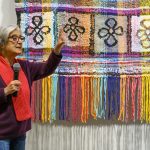From Uganda Street Kid to American Foster Care Dad
The human experience is an intricate tapestry woven with threads of struggle, triumph, and transformation, serving as a testament to the indomitable spirit that can rise from the depths of adversity and reshape destinies. Among the remarkable tales of resilience, few are as poignant as those of individuals who have emerged from challenging backgrounds to create a positive impact on the lives of others.
From the harsh and unforgiving streets of Uganda to the warm embrace of an American foster care dad, Peter Mutabazi’s life has been a remarkable journey of resilience and transformation. Growing up as a kid on the streets of Uganda, he endured unimaginable hardships, facing abuse, scarcity, and a constant struggle for survival.
However, a chance encounter with a kind stranger changed the course of Mutabazi’s life forever, sparking a desire to give back and help others just as he had been helped. Now, as an American foster care dad and founder of Now I Am Known, his story exemplifies the power of love, compassion, and second chances in making a profound impact on the lives of vulnerable children.
A grueling childhood on Uganda’s streets
In the bustling city of Kampala, Uganda, Mutabazi’s younger years were a constant battle for survival on the unforgiving streets. Escaping the abusive environment at home, where physical and verbal mistreatment were commonplace, seemed like a small respite compared to the hardships that awaited him as a street kid. Life on the streets was an arduous struggle, marked by a lack of basic necessities and constant danger.
“There was no hope on the streets,” Mutabazi shares. “The biggest issue was finding clean drinking water, and the majority of the street kids died from bacteria in the water.”
Every day, Mutabazi faced the harsh reality of being treated as less than human, an outcast, and unwanted by society. On the streets, he encountered hundreds of others in similar predicaments, and the competition for meager resources often led to perilous encounters. “I slept in the sewer for cover, but I remember the stench made me wish I was dead,” he recalls.
However, amid the bleakness of the streets, a glimmer of hope shone through. One fateful day, a stranger called Mutabazi by his name — a simple act of recognition that would change the trajectory of his life forever. This act of kindness became a turning point for him, as this compassionate individual stepped in to offer a helping hand and extend a lifeline to the young street kid, illuminating a path toward a brighter future.
“He taught me to use every resource I have to benefit not just myself, but others as well,” Mutabazi recalls fondly. “This is what propelled me to be the person I am today.”
Inspiration to become a foster dad and more
The seed of compassion planted by the kind stranger who reached out to Mutabazi during his time of need took root, blossoming into a deep desire to give back and uplift others in similar circumstances. “When I first came to the US,” he shares, “seeing so much wealth go unused really bothered me. I knew that if I ever had extra resources, I would love to use them to benefit others.”
Filled with gratitude for the second chance he had been given, Mutabazi made it his mission to become a foster care dad, “which I did as soon as I purchased my first house,” he recounts. He knew that providing a safe and loving home for vulnerable children — just as he had experienced — could make a world of difference in their lives. In doing so, he hoped to instill in them the same sense of worth and hope that was bestowed upon him, to help them find their place in a world that had once rejected them.
Becoming a foster care dad was not a decision Mutabazi took lightly. It was the culmination of years of emotional and financial preparation, coupled with the inner conviction to make a difference. As soon as he had the means and stability to offer a loving home, he embarked on this life-changing journey, inspired by the memory of his own transformation from a street kid to a person with a purpose.
In his new role as a foster care dad, Mutabazi recognized the unfortunate stigma surrounding foster children. He saw parallels between the way he had been treated as “less than human” on the streets of Kampala and the way some viewed foster children in the United States.
Determined to break down these misconceptions and spread awareness about the unique needs and potential of foster children, Mutabazi became an advocate for change. “This is why I started my organization,” he says, “to help children feel known and safe and to say ‘you’re special, you matter, you’re loved’.”
Cultural transitions and challenges as a foster dad
As Mutabazi embraced his new role as a foster care dad, he encountered a series of cultural transitions and challenges that further enriched his understanding of the diverse world he now inhabited. Coming from Uganda — a country with a simple and modest lifestyle — he found himself navigating the complexities of American culture, which was abundant and often overwhelming.
One significant cultural difference that confronted Mutabazi was the concept of food choices in America. In Uganda, food was a scarce commodity, and children ate what was available without the luxury of preference.
However, in the land of plenty, he had to adjust his perspective as a foster dad when the children in his care expressed their likes and dislikes. Learning to respect their choices and preferences, no matter how seemingly trivial, became an important aspect of providing a nurturing and accepting home environment.
“I had to take a step back and self-examine,” Mutabazi remembers, “to be able to let the kids in my home choose their food. It’s something that I hadn’t thought about before, but having options to eat what they want helps them feel safe and loved.”
Additionally, cultural diversity in skin color was an area of learning and appreciation for Mutabazi as a foster dad. His own Ugandan heritage, coupled with a thick accent, made him stand out in the United States. Yet, he was pleasantly surprised when the children in his care saw him simply as their dad without focusing on external differences.
“It warms my heart when others ask my kids who their dad is and they respond, ‘he is.’ Kids don’t care about skin color. They care about love,” Mutabazi notes. Observing their unassuming view of skin color and acceptance of him as family instilled in Peter a sense of pride and joy.
Through the eyes of his foster children, Mutabazi discovered a refreshing perspective on his own identity and the beauty of cultural diversity. He found solace in the fact that his children did not see him as an “other” but embraced him as their father, demonstrating the universality of family bonds that transcend appearances and origins.
As a foster dad, Mutabazi’s past experiences on the streets of Uganda granted him a unique understanding and compassion for the backgrounds of his foster children. He recognized that their behavior and coping mechanisms were often shaped by their traumatic histories, and he strived to create a safe space where they could heal and grow.
A profound perspective on life and family
Mutabazi’s experiences have given him a unique perspective on the value of second chances. Foster care offers biological parents an opportunity to right their wrongs, work towards reuniting with their children, and also affords foster children a chance to learn about being part of a nurturing family and to heal from their past wounds.
Mutabazi’s journey from a lone street kid to becoming a foster care dad granted him deep empathy for the trauma and struggles that define the lives of foster children. He understands that their journey to foster care is often marked by complex histories that may be hard to see on the surface. This empathy allows him to approach each child with patience, understanding, and an open heart, knowing that their behavior is a reflection of their past experiences.
The realization that family is not solely defined by blood ties became a fundamental aspect of Mutabazi‘s journey. As he welcomed foster children into his home, he witnessed the profound truth that family transcends genetic connections. The moment a child entered his life, he became their dad, and they became his family. This newfound appreciation for the power of his chosen family allowed him to find healing and solace, as he saw the bonds formed with those who had accepted and loved him unconditionally.
Mutabazi‘s journey from a street kid in Uganda to a foster care dad in America is an awe-inspiring testament to the strength of the human spirit and the transformative power of love. His profound perspective on life and family has allowed him to break down barriers and shatter stereotypes, showing that family is a matter of the heart, and that compassion and second chances have the potential to change lives.
Peter Mutabazi‘s story serves as a beacon of hope, encouraging us all to embrace the power of love, empathy, and second chances in creating a brighter and more inclusive world for vulnerable children and families.
Tweet


































